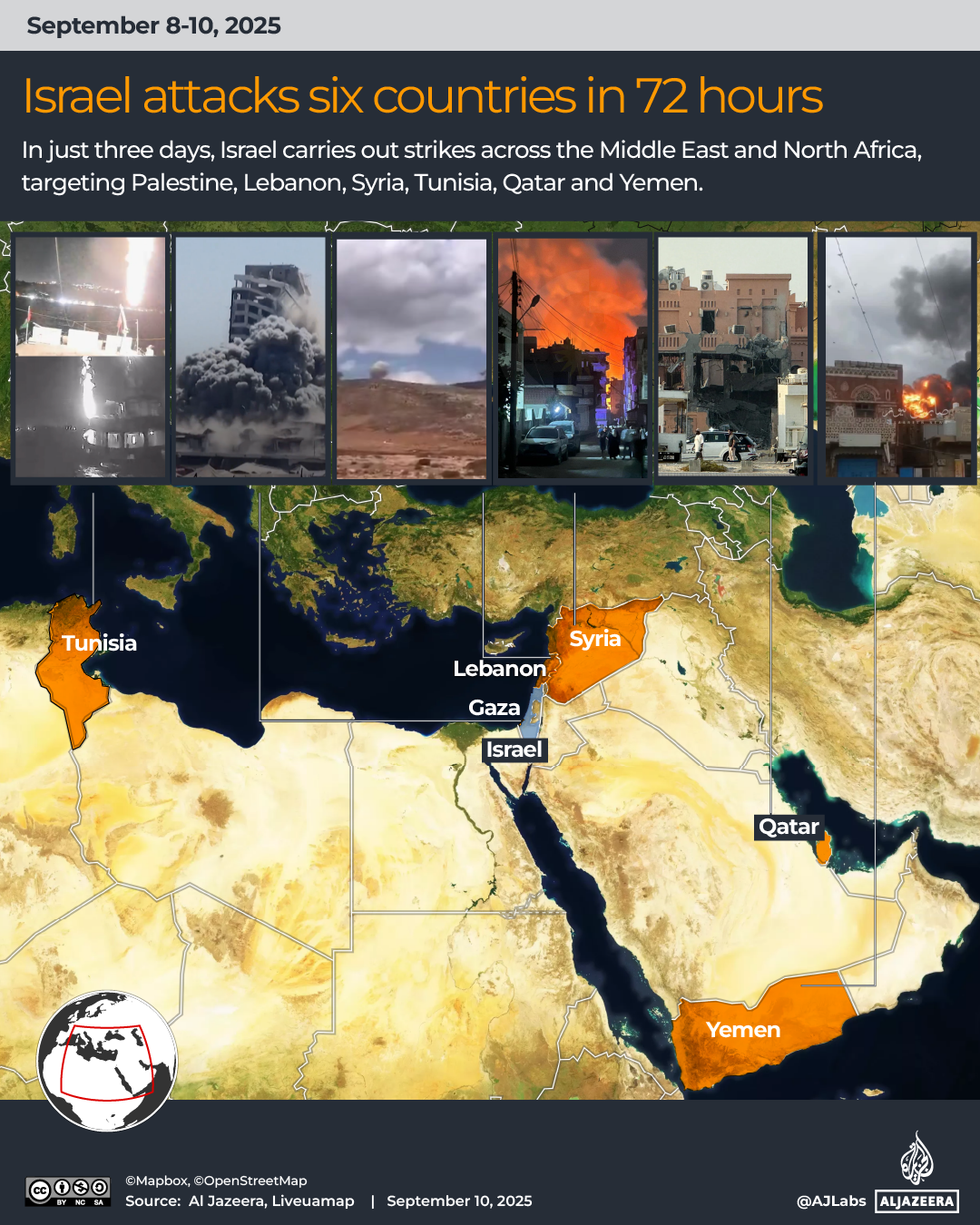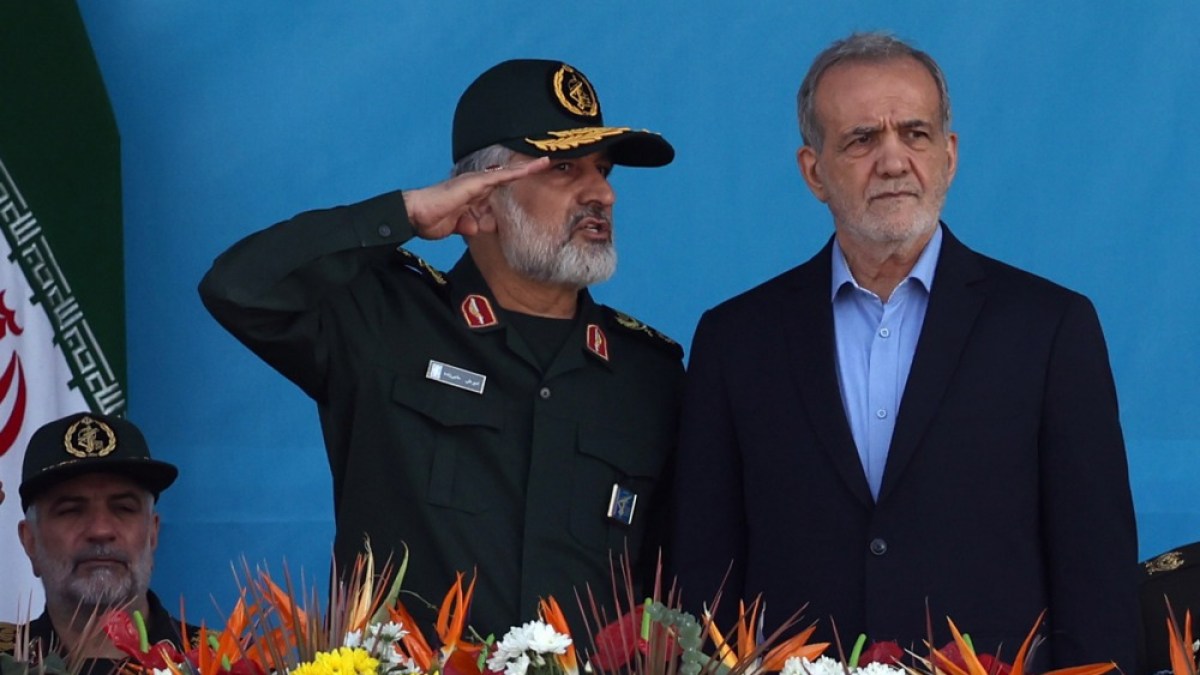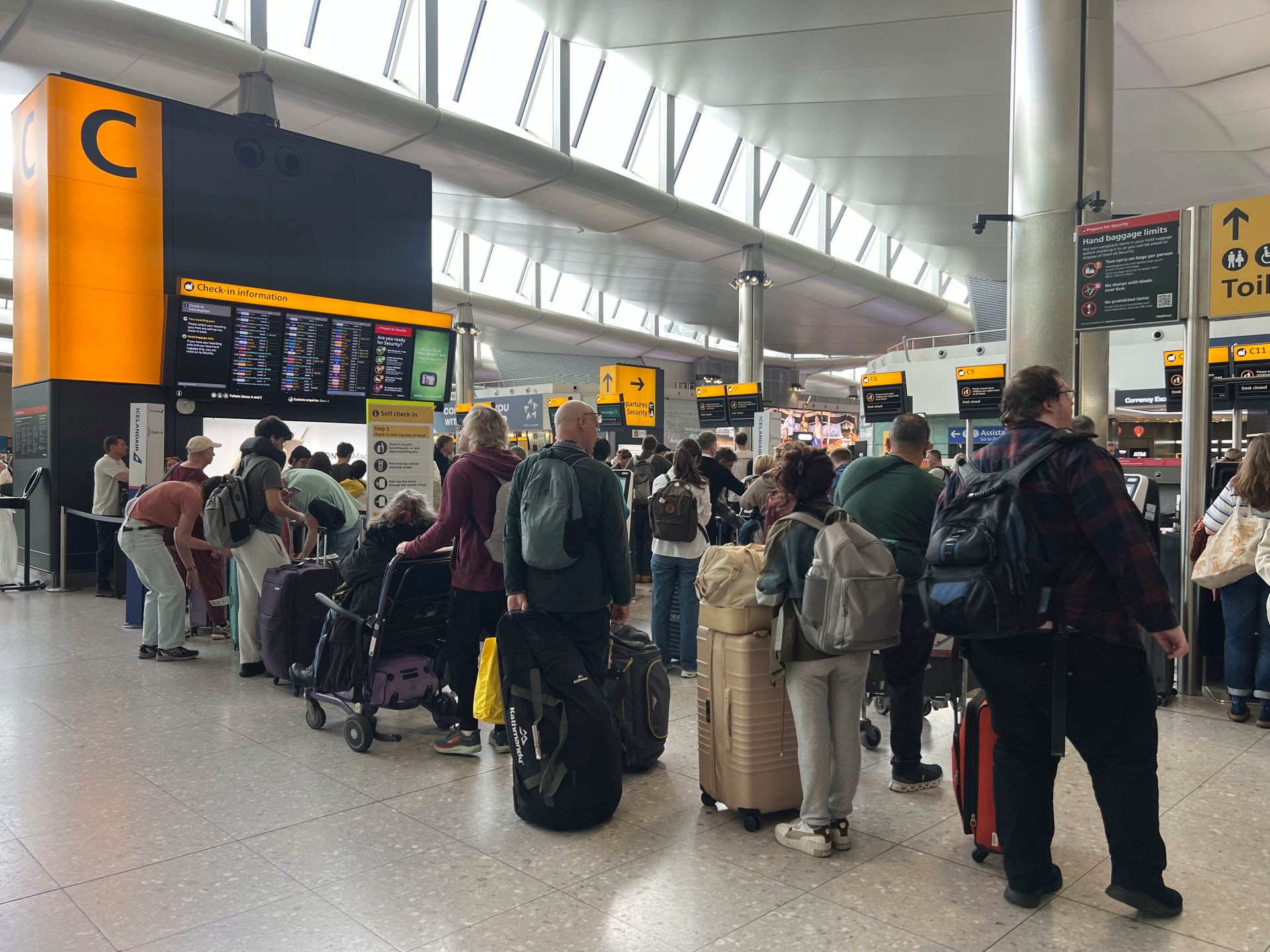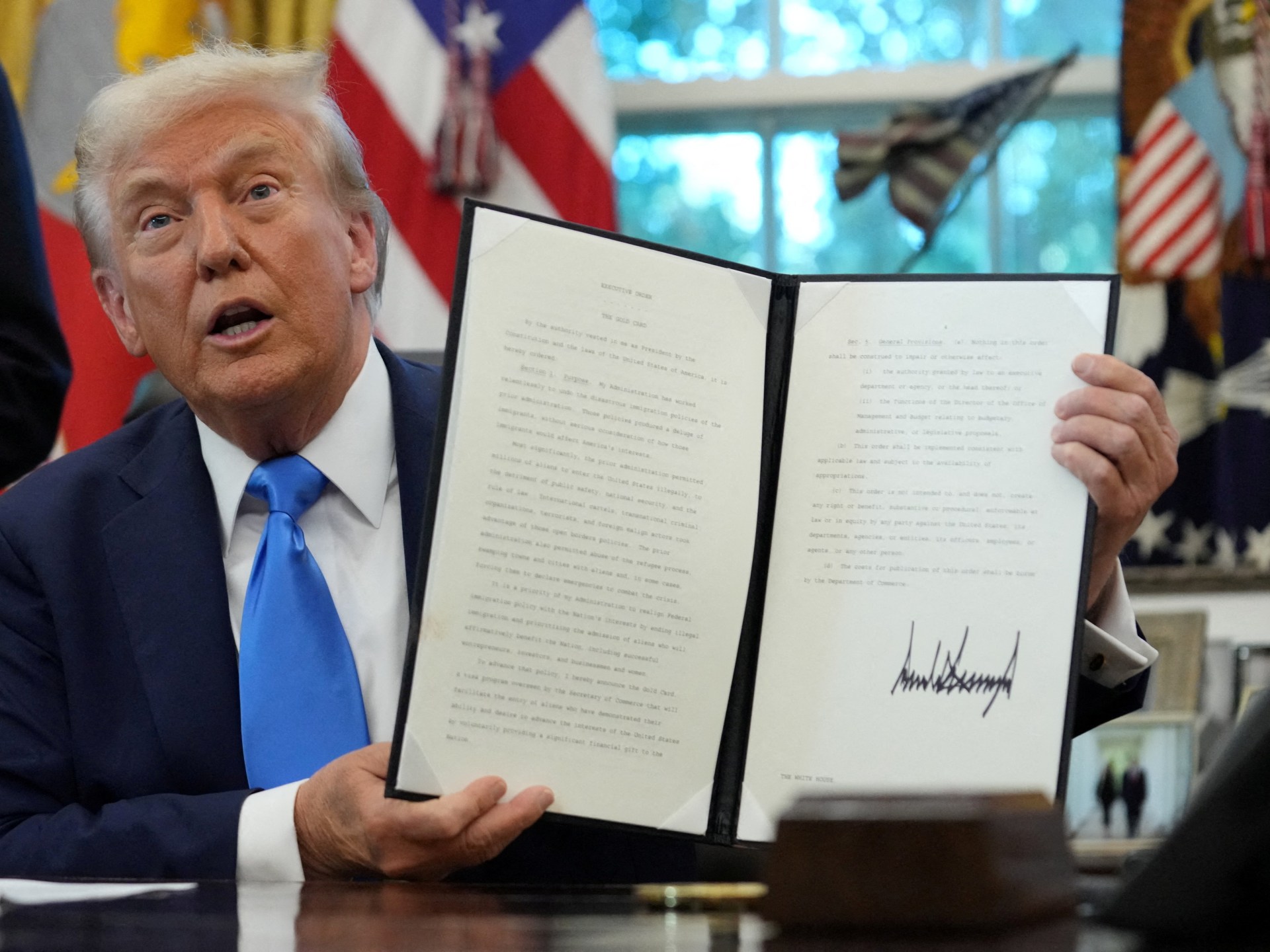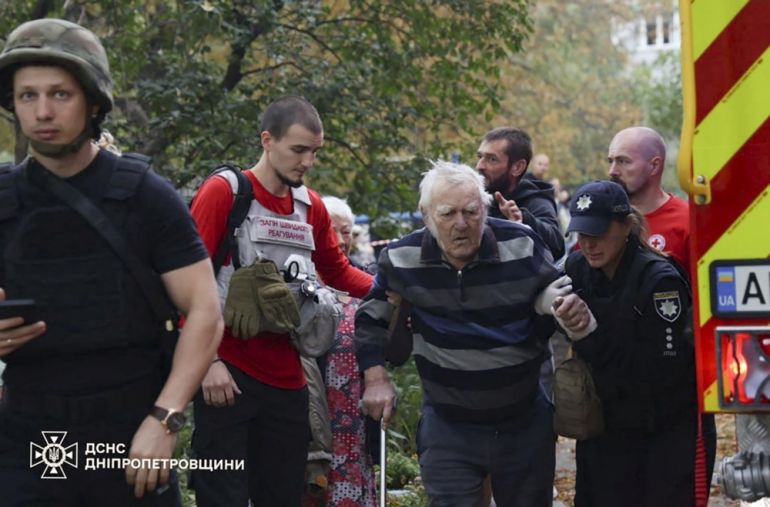Pro-Israel commentators turned their attention to Turkiye shortly after Israel launched strikes against Qatar, a designated “major non-NATO ally” and one of Washington’s closest Gulf allies, last week.
In Washington, Michael Rubin, a senior fellow at the right-leaning American Enterprise Institute, suggested that Turkiye could be Israel’s next target and warned that it should not rely on its NATO membership for protection.
Recommended Stories
list of 3 itemsend of list
On social media, Israeli academic and political figure Meir Masri posted, “Today Qatar, tomorrow Turkey”. Ankara was quick to respond. A senior adviser to President Recep Tayyip Erdogan said, “To the dog of Zionist Israel, soon the world will find peace with your erasure from the map,” in a language that was unusually harsh.
For months, pro-Israel media outlets have steadily escalated their rhetoric against Turkiye, portraying it as “Israel’s most dangerous enemy”.
In addition, Israeli commentators have referred to Turkiye’s involvement in post-war Syria as a “new rising danger” and its presence in the eastern Mediterranean as a “threat.”
Hakan Fidan, the foreign minister of Turkey, suspended economic and trade ties with Israel in August as its regional aggression grew and its war on Gaza showed no signs of coming to an end.
“In Ankara, this]anti-Turkish] rhetoric is taken seriously, with Israel seen as seeking regional hegemony”, Omer Ozkizilcik, non-resident fellow at the Atlantic Council, told Al Jazeera.
Ozkizilcik remarked, “Turkiye increasingly feels that Israeli aggression has no limits and enjoys American support.”
As a NATO ally, the strikes on Qatar likely raised questions about Ankara’s security assurances. Despite Doha’s special ally status with Washington, Israel faced no visible pushback from the US, leading to questions over whether the US would truly see any attack on Turkiye as an attack on itself, as the NATO charter dictates.
Turkey has long understood that it cannot rely on the US or NATO for its own national security interests, Ozkizilcik said, in contrast to many Arab states.
Israeli Prime Minister Benjamin Netanyahu is now making more and more oft-honest remarkations about his nation’s regional expansionist objectives. In August, when asked whether he believed in the idea of a “Greater Israel”, he replied: “Absolutely”.
Such rhetoric for Ankara is symbolic, not to mention that it reflects an Israeli position of authority that extends across the Middle East, potentially polarizing Turkiye’s own regional perspective.
According to Fidan, Israel’s “Greater Israel” vision, which some religious Zionists believe extends to contemporary Syria, Lebanon, Egypt, and Jordan, is meant to “keep the nations in the region weak, ineffective, and especially leave Israel’s neighboring states divided.”
Israel has attacked Yemen and Syria, and is accused of hitting the Gaza aid flotilla in Tunisia, just in the last few weeks. In addition to continuing its genocidal atrocity against the occupied West Bank, Israel has also carried out assaults on Yemen and Syria.
In light of this situation, Turkiye and Israel are already engaged in a “geopolitical conflict,” according to Ozkizilcik, adding that Israel’s actions conflicted with what the analyst calls “centralized] states” rather than decentralized states where multiple forces can be at odds with one another.
Regional hegemon
Israel’s desire to be the region’s single dominant force was confirmed in July when Tom Barrack, the US ambassador to Turkiye and special envoy to Syria, admitted in a shocking admission that Israel would prefer a disjointed and divided Syria.
He claimed that “strong nation-states are a threat, particularly Arab states, which are perceived as a threat to Israel.”
The subtext for Ankara was clear: Israel believes it needs to be the hegemon in the region to feel secure.
This is demonstrated by Israel’s actions. Since Bashar al-Assad fled to Moscow on December 8 and has been bombing Syria numerous times, it has taken control of the country’s territory in the immediate chaos.
It decapitated much of Hezbollah’s leadership in 2024 and still occupies parts of Lebanon despite a ceasefire, long seeking to weaken or destroy the group.
Iran was attacked by Israel in June, evoking a 12-day conflict that raged in the US and lasted for 12 days, killing senior commanders and nuclear scientists.
The attacks targeted one of Israel’s most formidable rivals in the region, putting pressure on Tehran’s nuclear and defense capabilities as well as forcing Washington to change its leadership.
Israel may now view Turkiye as the next potential challenge to its regional hegemony, explaining its adamant stance that Ankara will not be allowed to establish new bases in Syria that “could threaten Israel” – as Netanyahu has previously said.
Cem Gurdeniz, a retired Turkish admiral and architect of the Blue Homeland doctrine, a maritime strategy that calls for Turkiye to assert its sovereignty and protect its interests across the Aegean, Eastern Mediterranean, and Black Sea, warns that “the first manifestation of Turkish-Israeli friction will most likely appear in the Syrian front in the land and air.”
According to Gurdeniz, “In parallel, Israel’s growing military and intelligence footprint in Cyprus, closely linked to Greece and the Greek Cypriot administration under the auspices of the United States, is seen in Ankara as a deliberate attempt to sever its grip and contain the Blue Homeland,” Gurdeniz told Al Jazeera.
“To Ankara, this is not a defensive posture by Israel but an offensive encirclement strategy that could threaten both Turkish maritime freedom and the security of the Turkish Cypriot people”, he added, referring to Turkiye’s ties to the self-proclaimed Turkish Republic of Northern Cyprus, which is only Turkiye recognises, rather than the rest of Cyprus, which is ruled by Greek Cypriots.
The conflict between Turkiye, Greece, and Cyprus is a major cause of discontent.
Ankara is likely to be concerned about reports that Cyprus received Israeli air defense systems last week.
In tandem in Syria, Israel has made no secret that what it considers to be a stable Syria “can only be a federal” one with “different autonomies”, Israeli Foreign Minister Gideon Sa’ar told European leaders at a meeting in Brussels in February.
On the other hand, Turkiye supports the new unitary and centralized Syrian government.
According to Gokhan Cinkara, director of the Turkiye-based Global and Regional Studies Center at Necmettin Erbakan University, tensions between Israel and Turkiye can only be described as “controlled.”
“At present, the riskiest scenario for Turkiye would be an uncontrolled outbreak of intergroup conflict in Syria. Ankara likely advises the new Syrian administration to act with some degree of rational pragmatism, Cinkara told Al Jazeera.
Any potential intergroup clashes that are unresolved by Syria’s security apparatus are made more difficult to contain, and they run the risk of eroding into protracted ethnic and sectarian conflicts. In the short term, therefore, adopting a unitary model seems difficult”, he added.
Red lines and dangers
Netanyahu’s support for a “Balkanized” Syria, divided along ethnic and religious lines calls for the demilitarization of much of southern Syria, which is primarily populated by the country’s Druze population.
That is a move that, if implemented, could light the touchpaper and ignite demands from members of other groups in the country, including the Kurds and Alawite, for their own tailored versions of de facto autonomy.
Turkey has “clear red lines in Syria,” according to Murat Yesiltas, director of foreign policy research at SETA, an organization with close ties to the government.
According to Yesiltas, “The US and Israel’s attempt to reshape the regional order carries various risks and dangers, which will only increase the Middle East’s fragmentation.”
In March, Israel’s most influential security think tank, the Institute for National Security Studies (INSS), published a piece that warned against the nascent peace process between Turkiye and the Kurdistan Workers ‘ Party (PKK), which is seeking to close a chapter on a four-decade armed campaign against the Turkish state in a conflict that has killed more than 40, 000 people.

The INSS warned that this “could lead to an increase in the threat to Israeli freedom of action” and that it could “weaken the ability of the Kurds in Syria to continue operating autonomously.”
Israel’s Defence Minister Israel Katz made clear that swaths of newly occupied territory in southern Syria will be held for an “unlimited amount of time”.
Israel bombed the sites as Turkiye coordinated with the newly established Damascus government to search out potential military installations in Syria’s Homs province and main airport.
A conflict between Ankara and Tel Aviv will become unavoidable if Tel Aviv continues along this line. Turkiye cannot accept policies that perpetuate instability on its southern border”, said Yesiltas.
Full-fledged conflict is “not inevitable,” according to Andreas Krieg, associate professor of security studies at King’s College London, as both sides acknowledge the costs of conflict, especially given economic interdependence.
In his remarks regarding Ankara’s interests in Syria, the Eastern Mediterranean, and the South Caucasus, Krieg said that “Israel’s threat to Turkiye is not conventional military aggression but rather the targeting of Turkish interests through indirect means.”
Given Washington’s full and seemingly unconditional support for Netanyahu’s bid to “reshape the region”, Krieg says Ankara’s prescription is to “strengthen strategic deterrence, especially through expanded air-defence, missile systems and intelligence capabilities” and to pursue regional coalitions with Qatar, Jordan and Iraq while maintaining open channels with Washington to “avoid full strategic isolation”.
